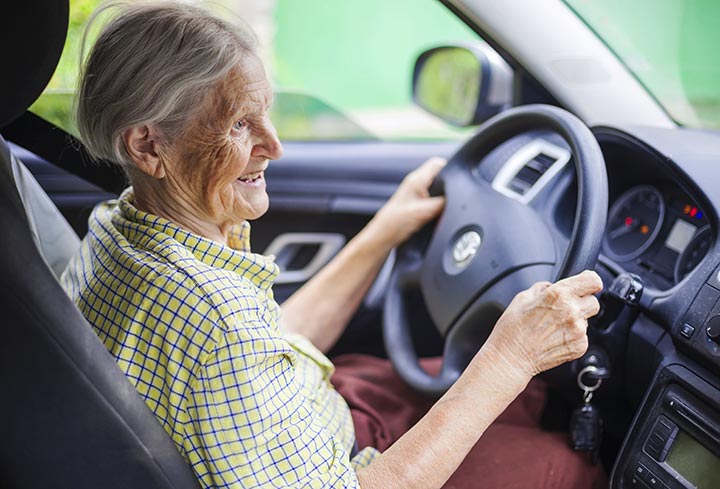
Chances are, though, it’s going to come up.
If our parents or loved ones live long enough to experience either the cognitive decline, visual impairment, or decline in motor skills, there will likely come a time where we need to have “the talk”. And to be truthful, there is not much I can share that will make it easy. It probably will be rough. They may fight you on it, you may feel completely torn between their safety (and the safety of others on the road) and your relationship as their child.
The best advice I can offer when going through the process is to optimize objectiveness.
If you’re reading this before the issue has come up, talking about this with your parent long before it becomes a reality is the best course of action. Even if your parents have less than a hint of any cognitive impairment or issue that would impact them driving, it will serve you best if you sit down and ask them how they would like you to handle it if it ever becomes a reality. If you are able to do this before the issue comes up, set specific measures that will indicate to you and your family that it is time to have your loved one stop driving. Have them come up with these criteria with you, and sign off that they agree to the terms. This way, when the issues come up, there is an element of objectiveness to it.
On the other end, the best advice I can offer is to call in reinforcements.
I hear it often that what started as a ding or a dent that Dad couldn’t explain turns into something much worse, be it significant damage or a Silver Alert. Unfortunately, sometimes the dents and dings go without discussion, and the family decides to look the other way to preserve Dad’s pride and not cause an argument. Then, when that damage or event that is impossible to ignore comes up, we add the insult to injury by broaching the subject at that raw moment.
Work with a doctor.
Regardless of when the time comes for your family, knowing what options you have for support can make a huge difference. Many families elect to discuss the need for a loved one to stop driving first with the primary care doctor, who may offer a series of screenings or a test to your loved one that will determine if it is still safe for them to be driving. If the primary care doctor is aware of a past series of incidents, accidents or concerns, they may be willing to write a “no driving” order, but this will depend on the physician.
Utilize the DMV.
If you feel an additional level of authority would help, you can work with your local DMV to have your loved one tested. In many cases, something from the DMV is much more impactful and undeniable than a doctor’s note. This process will depend on your state, but here in Pennsylvania, I spoke with a representative from the DMV who said families can work with their loved one’s doctor to call PennDot Medical Unit for a “Medical Recall”. Per their website, “A medical recall is a type of indefinite suspension that could appear on your driver record. This type of indefinite suspension is due to a medical professional notifying PennDOT that you are unfit to operate a motor vehicle safely.”
Out of sight, out of mind.
Once you have the keys out of their possessions, consider also removing the car. Depending on the person, you might choose to come up with a good excuse for why the car is not there. Maybe a grandson needed to borrow the car while he was in college, or maybe the car is in for inspection and needing some work done. This will completely depend on your person, their cognitive status, and what will help ease anxiety. As a general guide though, typically “out of sight, out of mind” will come into play to some degree. If the car isn’t sitting in the driveway, it’s much less easy for them to get behind the wheel.
Maintain empathy.
Remember that the pushback and frustration that we are getting back from a loved one when they lose the ability to drive comes from a loss of independence. Think about how excited we are when we turn 16 and suddenly we can get anywhere on our own. Slowly that feeling of freedom fades into the everyday and we forget how fortunate we are to be able to have that independence. We raise a family and drive our children everywhere, teach them to drive, move them to college, caravan on family vacations, and then we turn 85 and our children take that freedom away from us. Can you imagine how that must feel? Many professionals in the aging services industry believe that this time can be a time when symptoms of depression and isolation spike, and of course they do. Anything that we can do to maintain independence, autonomy, and agency will be huge is softening the blow.
So, if you know this conversation is around the corner, see what other transportation services are available or what schedule you can work out with a neighbor, your family, and even apps like Uber and Lyft (check out GoGo Grandparent https://gogograndparent.com/) to make sure your loved one still knows they can get out when they need to. Plan to “be in the neighborhood” or to “need a hand” when you are out and about. Not only will this lessen them feeling like a burden, but it might even increase them feeling valuable.
It’s not going to be a carnival. This is one of those times that you’ll probably look back on and think “Gosh, that was hard” or maybe just “ugh”. But remember that if you’re able to come at it from a place of empathy and care while maintaining as much dignity and objectiveness as possible, the conversation won’t be about something you are doing to them, but about something that happened, and you are working through together.
As always, if you need additional support, resources, or someone to talk to, reach out.
allie@brandywine-concierge-senior-services.websitepro.hosting

